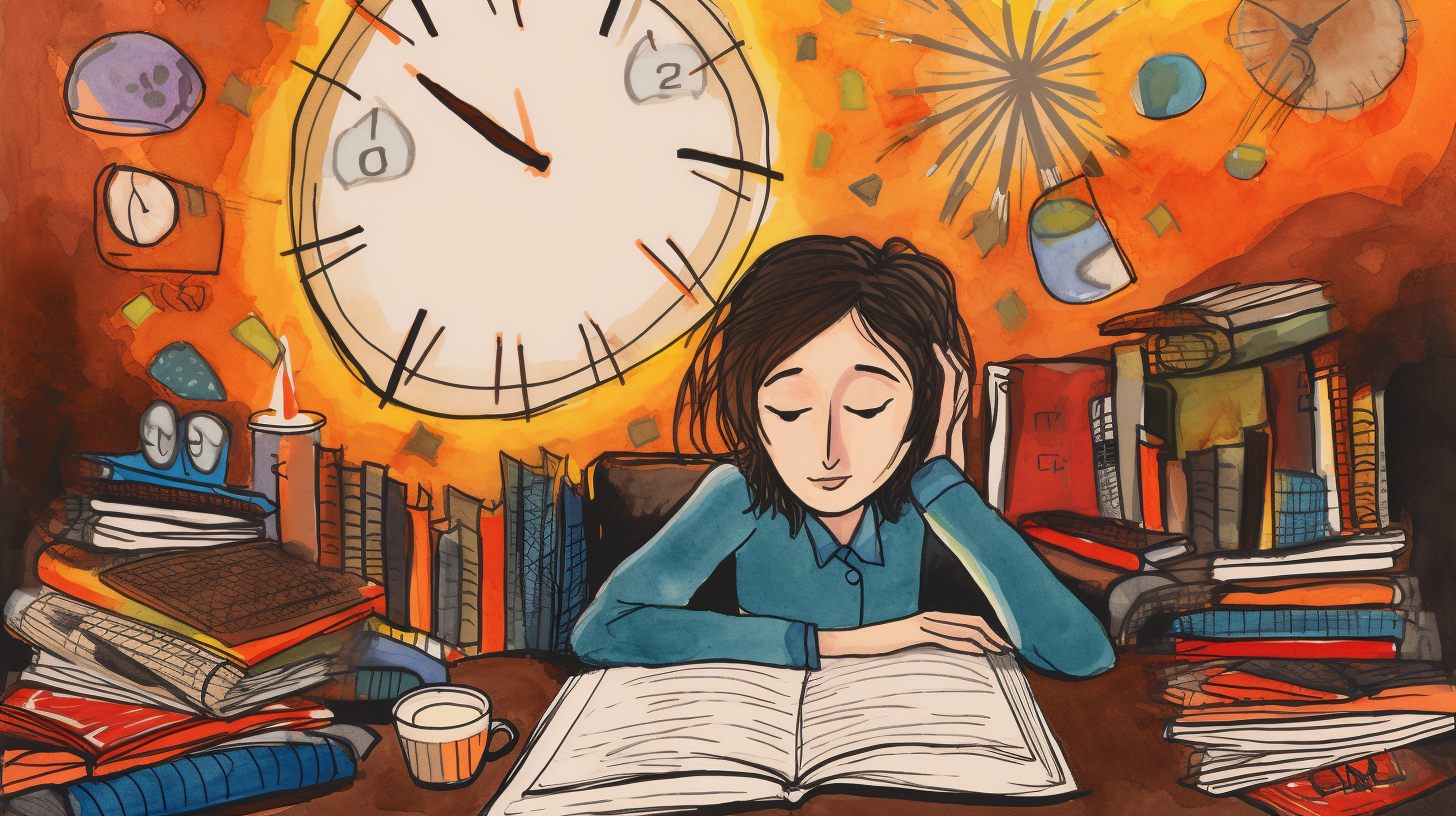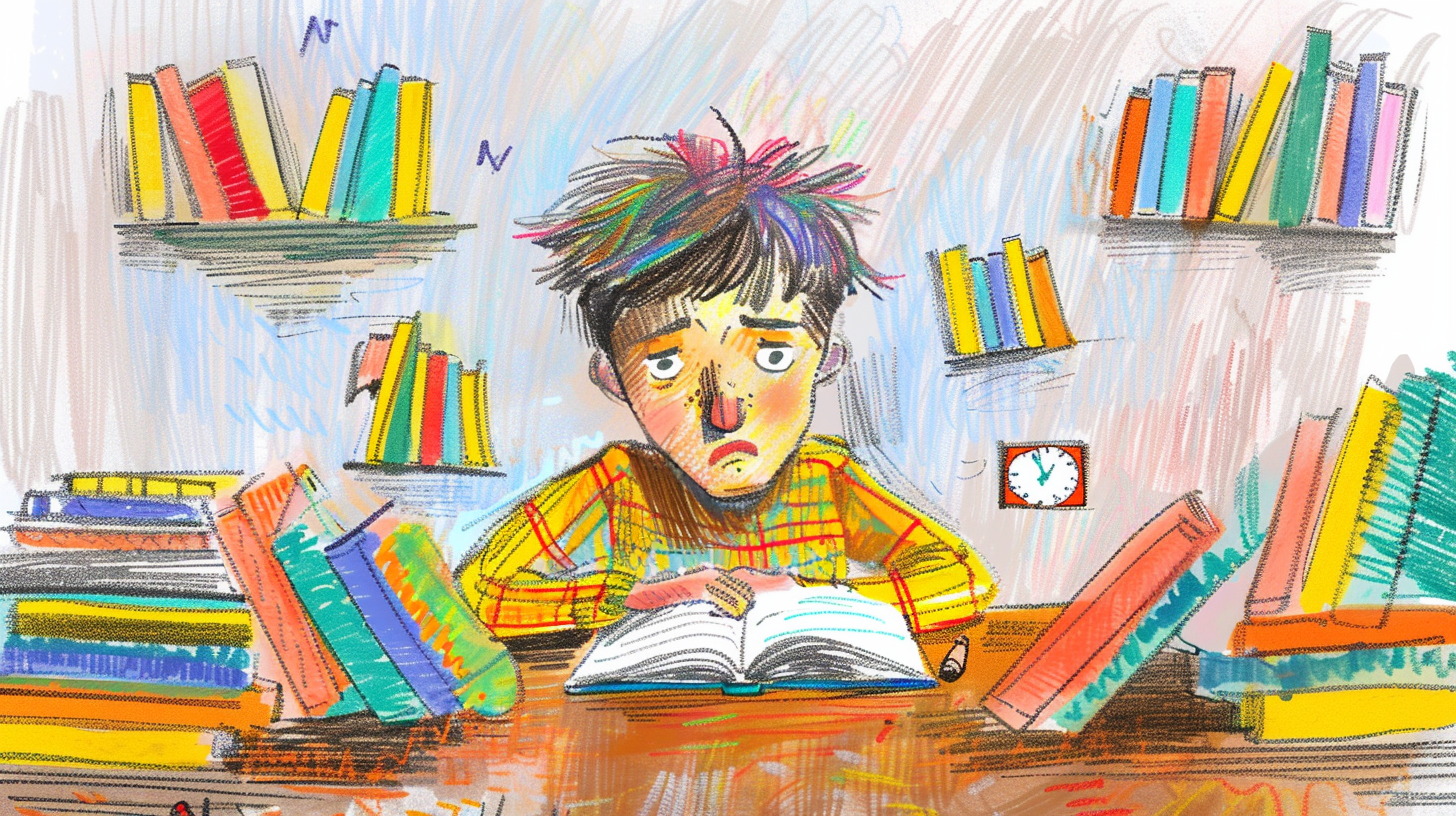Have you ever wondered if the phrase “can you read in dreams” is a myth or a reality? Dreams are a fascinating escape from the waking world, often weaving narratives that feel as real as our daily lives. But when it comes to reading in these nocturnal adventures, what’s the truth? You’re about to dive deep into the nature of dreams, unraveling their enigmatic layers.
You’ll also explore the science of dreaming, uncovering what happens in your brain when you’re lost in a dreamland. Plus, you’ll get insights into the curious phenomenon of reading in dreams and discover how lucid dreaming might allow you to control the narrative and even read within your dreams. Buckle up; it’s time to explore the dream world like never before.
The Nature of Dreams
What Are Dreams?
When you drift into sleep, your brain doesn’t just shut down. Instead, it embarks on a complex journey, bringing about dreams. These experiences blend emotions, images, and thoughts typically occurring during REM sleep. They can be vivid or fleeting, making you question if can you read in dreams or if such an act is anchored in reality. Dreams represent a state where the conscious and the subconscious sketch scenarios ranging from mundane to the fantastical.
While some individuals report reading in dreams, many find reading texts in dreams challenging. The reason for this lies in the intricate workings of your brain. The regions tasked with language interpretation aren’t as active in the dream state, making tasks like reading words in dreams less common. Even though this, you might experience a sensation of reading in your dreams, but upon waking, the clarity of those written words often fades.
Why Do We Dream?
The function and purpose of dreaming have long piqued human curiosity. Why can’t you read in dreams? Why do some memories play out in muddled sequences as you sleep? Experts believe dreaming maybe your brain’s way of processing emotions, consolidating memories, and sifting through the day’s events. Although you can’t typically read in your dreams, these nightly narratives might serve critical cognitive functions. It’s said that during dream states:
- You sort through and store essential memories
- You discard irrelevant details from your day
- You work through emotional experiences
For the audiobook enthusiast, the question of why can’t I read in my dreams might seem less pressing. After all, audiobooks offer the joy of literature without the necessity of visual engagement, a boon for those who spend their days dreaming of stories. They provide a bridge to the literary world when your eyes are tired, allowing a similar immersion into storytelling that dreams offer without the unpredictability of the dream state.
The Science of Dreaming
The REM Stage of Sleep
Dreams tend to unfold during the Rapid Eye Movement (REM) sleep phase. This stage is characterized by intense brain activity, rapid eye movements, and temporary paralysis of your limb muscles—presumably to prevent acting out dreams.
The REM stage cycles throughout the night, typically beginning around 90 minutes after you fall asleep and recurring approximately every 90 minutes. It’s said that most vivid dreams happen during REM sleep. Understanding your REM cycle could be key if you ask yourself, “Why can’t I read in my dreams?”
The Role of the Brain in Dreaming
Your brain’s role in dreaming is complex. Regions critical for reading and language, primarily located in the posterior and mid-regions, are not fully active while dreaming. The Broca’s area, crucial for speech production, and the Wernicke’s area, essential for understanding language, operate on limited capacity during REM sleep. This potentially answers the question, “Why can’t you read in your dreams?” The activity in these areas during sleep doesn’t help the ordinary comprehension of language, which may explain why reading in dreams or seeing written words in dreams is a rarity.
Theories on the Function of Dreams
Dreams have long been a subject of intrigue and debate, with several theories on their functions. One prevailing hypothesis is that dreams serve as mental rehearsals for future threats, equipping you to face challenges better. Another suggests that dreams are instrumental for memory consolidation, where the day’s events are processed and stored.
Cognitive scientists also posit that dreams may enhance problem-solving skills, allowing you to approach real-life situations more adeptly. This background emphasizes why, even though the capability of experiencing dreams so visceral they feel real, you can’t read in dreams—a function that your brain seems to deem unnecessary in this abstract realm.
Considering the audiobook experience, imagine immersing yourself in a story with richly woven narratives, where understanding and visualizing the plot doesn’t hinge on your REM sleep cycle or the ability to read text in a dream. Audiobooks may offer a comparable sense of immersion to dreams, effortlessly enveloping you in their verbal landscape.
Reading in Dreams
Can You Read in Dreams?
You might’ve heard that you can’t read in dreams, yet reports from dreamers say they’ve accomplished just that. But can you consistently read the text in a dream? The short answer: it isn’t very easy. Your brain’s not fully equipped for reading during REM sleep—when dreams are most vivid—because certain linguistic regions aren’t fully active. Hence, if you believe you can read in your dreams, it might be a fleeting and changeable experience.
Experiences of Reading in Dreams
People share tales of Reading in Dreams with varying details—some claim to see words clearly, reading signage or scrolling through texts. But, reading in your dreams often defies the stability found with awake reading; dream text can morph or become nonsensical upon a second glance. This very fluidity can clue you into the fact that you’re dreaming—a built-in reality check for those practicing lucid dreaming techniques.
Theories on Reading in Dreams
While it is true that reading in a dream poses challenges, some believe that those deeply immersed in the literary world, like poets and writers, may dream differently. These creative individuals might read words in dreams more often, as their waking life strongly revolves around the craft of playing with language. But, when pondering whether you can read in your sleep, it’s crucial to remember that mastering the intricacies of dream reading is not common.
Listening to audiobooks can complement the dreamlike narrative experience without the inherent uncertainties of reading in dreams. They offer an immersive storytelling journey paralleling dreams’ fluidity, where you can absorb literature effortlessly. So next time you wonder why can’t you read in dreams, consider giving audiobooks a listen. They can provide a seamless and enriching alternative to satisfy your hunger for stories, even when deciphering dream text is impossible.
Lucid Dreaming and Reading
What Is Lucid Dreaming?
Lucid dreaming is a state where you’re aware you’re dreaming. Unlike regular dreams, where you passively experience the narrative, lucid dreaming uniquely controls your dream environment. It’s a captivating phenomenon at the intersection of consciousness and subconsciousness.
In this distinctly vivid state, the usual limitations of dreaming fall away. You’re not confined to the passive receipt of jumbled dream sequences; you can actively engage with and manipulate your dream world. And it’s within these lucid dreams that the possibility of reading comes into play.
Reading in Lucid Dreams
You might wonder, can you read in your dreams? While it seems straightforward, the question hinges on the type of dream in question. Regular dreams often confuse readers – text might appear blurry, nonsensical, or change upon a second look. This has led many to assert that you can’t read in dreams. But reading in lucid dreams presents an entirely different scenario. Here’s where things get interesting.
Since lucid dreams are more vivid and your brain’s language-processing areas are more active, why you can’t read in dreams is less applicable. The text can remain stable, allowing can you read in a dream to become a reality. These experiences might be fleeting for some, but others report being able to read entire passages with clarity, giving hope to the notion that you can read the text in a dream.
Techniques to Enhance Reading in Lucid Dreams
Want to increase your chances of reading in your dreams? Practice and patience are essential. Adopting specific techniques might can’t read in dreams into I can read in my dreams. Here’s how:
- Reality Checks: Frequently ask yourself throughout the day if you’re dreaming and perform a simple test like reading text or attempting to push a finger through your palm. With practice, this habit will carry over into your dreams.
- – Dream Journaling: A dream journal helps you remember your dreams and recognize patterns, which is crucial for initiating lucidity and enabling reading in dreams.
- – Mnemonic Induction of Lucid Dreams (MILD): Before sleeping, repeat the intention to remember you’re dreaming. This affirmation could pave the way for more precise, controllable dream experiences where reading might be possible.
- – Wake Back to Bed (WBTB): Set an alarm to wake up five hours after falling asleep, then stay awake for a bit before returning to sleep. This prompts your body to re-enter REM sleep, where lucid dreaming and potentially reading in dreams are more likely.
Incorporating these approaches may not guarantee an immediate shift to lucid dreaming and the subsequent ability to absorb written words in your slumber. But, they foster a closer connection between waking logic and dream-world experiences, which could, over time, allow for dream reading.
Engaging with written text in dreams is a fascinating topic, especially for those who relish the magic of stories. For active readers and dream explorers alike, the idea that you can read in your sleep through natural lucidity or intentional practice opens up many possibilities.
Remember, while conventional reading might have its constraints within the dream world, audiobooks remain a reliable way to immerse yourself in narrative excellence without needing visual confirmation of text, ensuring your love for stories continues, day or night.
Conclusion
You’ve explored the intriguing realm of reading in dreams, primarily through the lens of lucid dreaming. By practicing techniques like reality checks and dream journaling, you’re on your way to possibly reading texts in your dreamscapes.
Remember, it’s not an overnight journey but a fascinating process of connecting your waking consciousness with the fluidity of dreams. And if reading in dreams proves elusive, don’t forget that audiobooks offer a seamless way to jump into stories quickly. Keep dreaming, keep exploring, and who knows? You might find yourself flipping through pages in your next dream adventure.
Frequently Asked Questions
Can you read text clearly in a lucid dream?
In a lucid dream, the ability to read text can be much more apparent due to increased activity in the brain’s language-processing areas. With practice, some people can read in their lucid dreams.
How can reality checks help with lucid dreaming?
Reality checks help by training your mind to notice your consciousness. Performing them regularly can trigger awareness within the dream, potentially initiating a lucid dream.
What is the mnemonic induction of lucid dreams (MILD)?
Mnemonic induction of lucid dreams (MILD) is a technique where you mentally prepare yourself to recognize you’re dreaming. It typically involves waking up after five hours of sleep and then focusing on remembering your craving.
Is it possible to control your dream environment in lucid dreaming?
Yes, in lucid dreaming, you are aware that you’re dreaming. This awareness can allow you to control your dream environment and its events to an extent.
Can audiobooks provide a dreamlike experience?
Audiobooks can offer an immersive storytelling experience akin to dreaming, allowing the listener to visualize scenarios without needing visual confirmation, similar to how one imagines scenes while dreaming.




